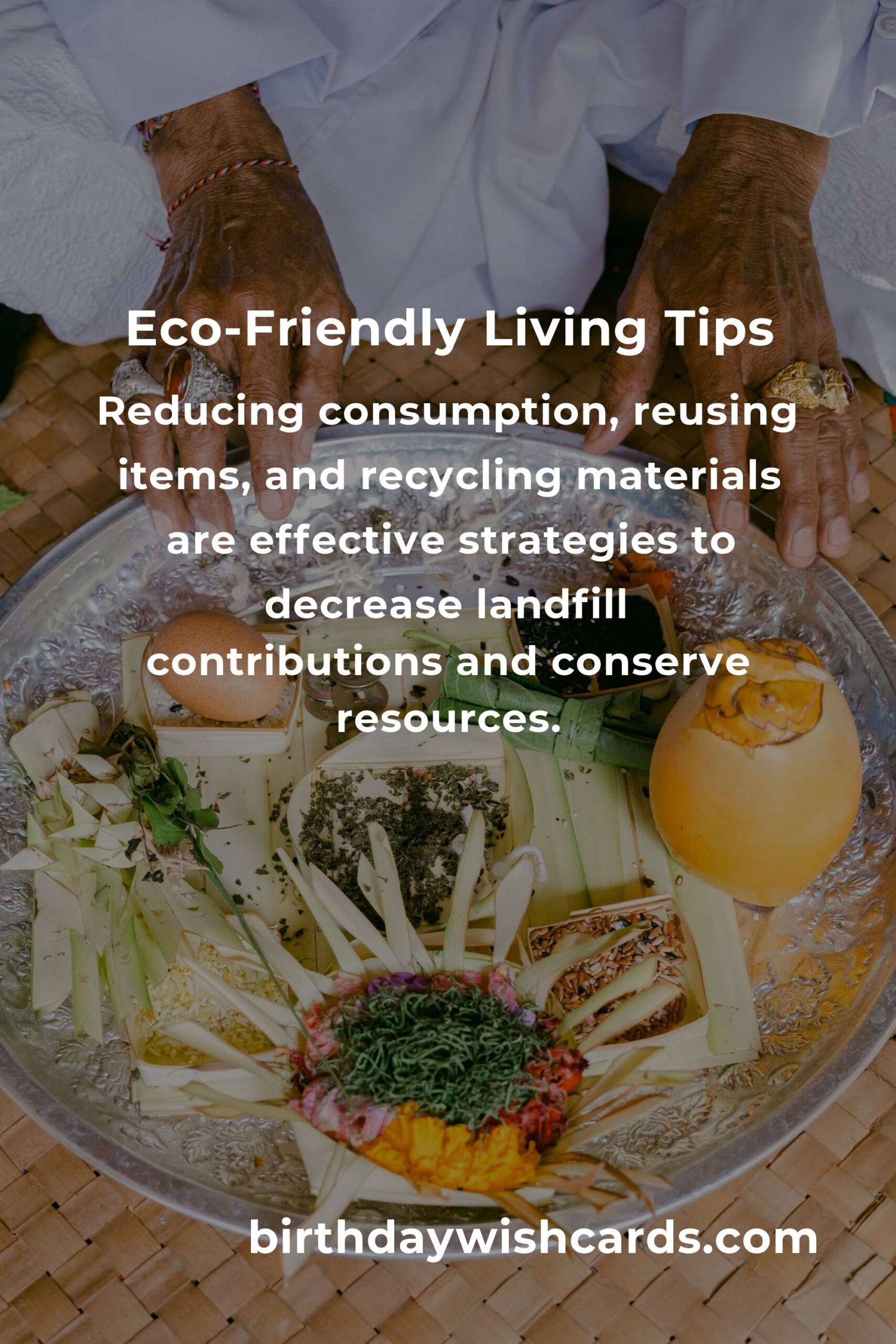
As awareness of environmental issues continues to grow, more people are seeking ways to incorporate eco-friendly practices into their daily lives. Sustainable living not only benefits the planet but also enhances personal well-being and can even lead to financial savings. Here are 13 practical tips to help you live more sustainably.
1. Reduce, Reuse, Recycle
The three R’s are fundamental in minimizing waste. Reducing consumption, reusing items, and recycling materials are effective strategies to decrease landfill contributions and conserve resources.
2. Embrace Energy Efficiency
Switching to energy-efficient appliances and light bulbs can significantly reduce your carbon footprint. Additionally, unplugging devices when not in use can further conserve energy.
3. Opt for Renewable Energy
Consider switching to renewable energy sources such as solar or wind power. Many utility companies offer options to purchase green energy, making it easier than ever to support sustainable energy production.
4. Conserve Water
Water is a precious resource, and conserving it can make a big difference. Simple actions like fixing leaks, taking shorter showers, and using water-efficient fixtures can save gallons of water daily.
5. Choose Sustainable Transport
Reduce your reliance on fossil fuels by walking, biking, carpooling, or using public transportation whenever possible. Electric vehicles are also an eco-friendly alternative to traditional cars.
6. Support Local and Organic Products
Buying local and organic products supports sustainable agriculture and reduces the carbon footprint associated with transporting goods over long distances.
7. Reduce Meat Consumption
Meat production has a significant environmental impact. Reducing your meat intake, even slightly, can contribute to a more sustainable lifestyle. Consider integrating meatless meals into your weekly routine.
8. Use Eco-Friendly Cleaning Products
Many conventional cleaning products contain harmful chemicals. Switching to eco-friendly alternatives reduces the release of toxins into the environment and is safer for your home.
9. Minimize Plastic Use
Plastic pollution is a major environmental issue. Use reusable bags, bottles, and containers to cut down on single-use plastics, and support companies that are committed to sustainable packaging.
10. Plant Trees and Support Reforestation
Trees absorb carbon dioxide, improve air quality, and provide habitats for wildlife. Planting trees and supporting reforestation projects can have a lasting positive impact on the environment.
11. Practice Sustainable Gardening
Grow your own fruits and vegetables to reduce your food’s carbon footprint. Use organic gardening practices and compost to enrich your soil sustainably.
12. Educate and Advocate
Educate yourself and others about environmental issues. Advocating for policies and practices that support sustainability can lead to broader systemic change.
13. Live Minimally
Embrace a minimalist lifestyle by decluttering and focusing on quality over quantity. This approach not only reduces waste but also promotes a more intentional and fulfilling life.
Incorporating these eco-friendly practices into your life can contribute to a healthier planet and a more sustainable future for all. Start small, and gradually build on these habits to make a meaningful impact.
Reducing consumption, reusing items, and recycling materials are effective strategies to decrease landfill contributions and conserve resources. Switching to energy-efficient appliances and light bulbs can significantly reduce your carbon footprint. Consider switching to renewable energy sources such as solar or wind power. Simple actions like fixing leaks, taking shorter showers, and using water-efficient fixtures can save gallons of water daily. Reduce your reliance on fossil fuels by walking, biking, carpooling, or using public transportation whenever possible. Buying local and organic products supports sustainable agriculture and reduces the carbon footprint associated with transporting goods over long distances. Reducing your meat intake, even slightly, can contribute to a more sustainable lifestyle. Switching to eco-friendly alternatives reduces the release of toxins into the environment and is safer for your home. Use reusable bags, bottles, and containers to cut down on single-use plastics. Planting trees and supporting reforestation projects can have a lasting positive impact on the environment. Grow your own fruits and vegetables to reduce your food’s carbon footprint. Educate yourself and others about environmental issues. Embrace a minimalist lifestyle by decluttering and focusing on quality over quantity.
#EcoFriendly #SustainableLiving #GreenPractices #ReduceReuseRecycle #RenewableEnergy












